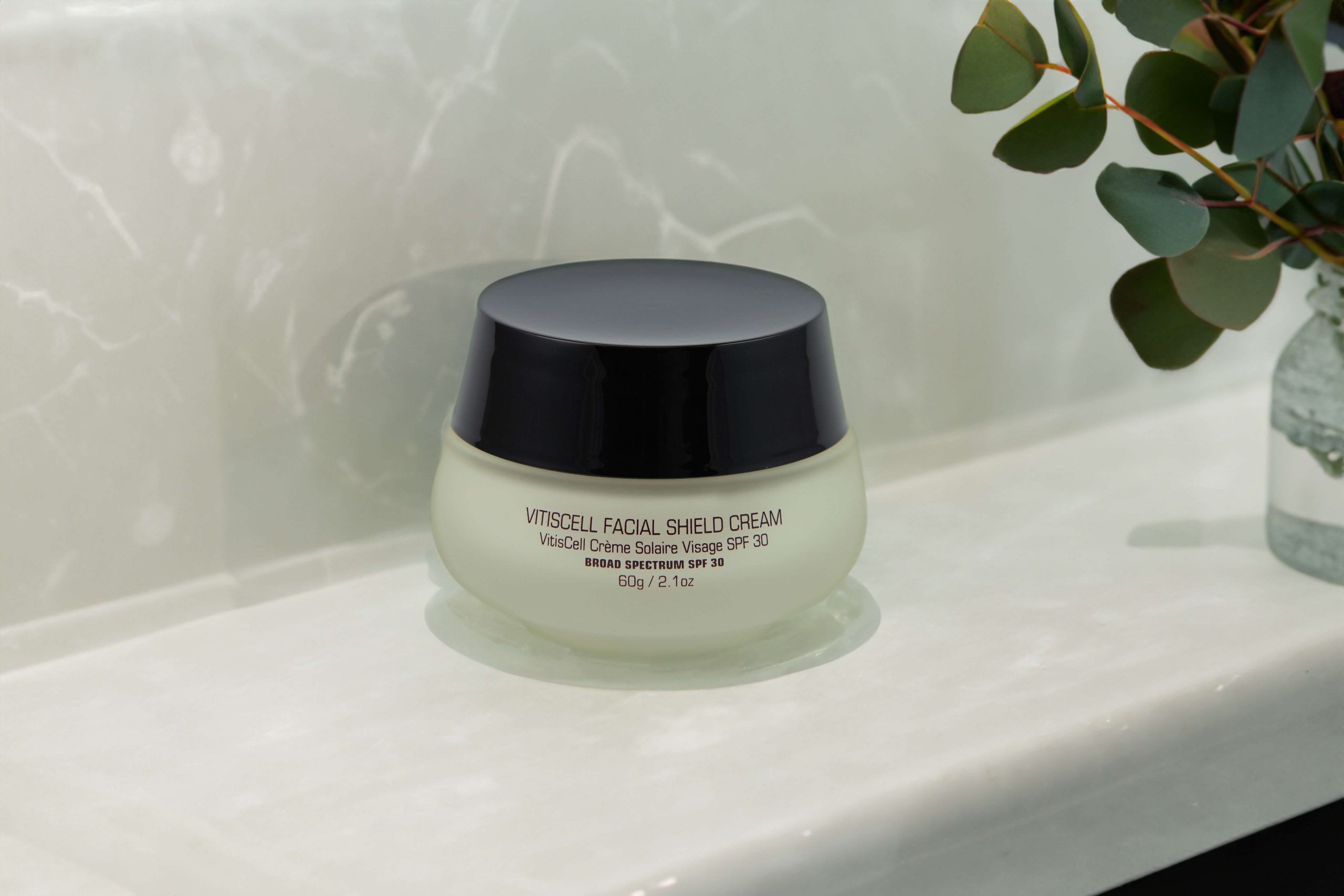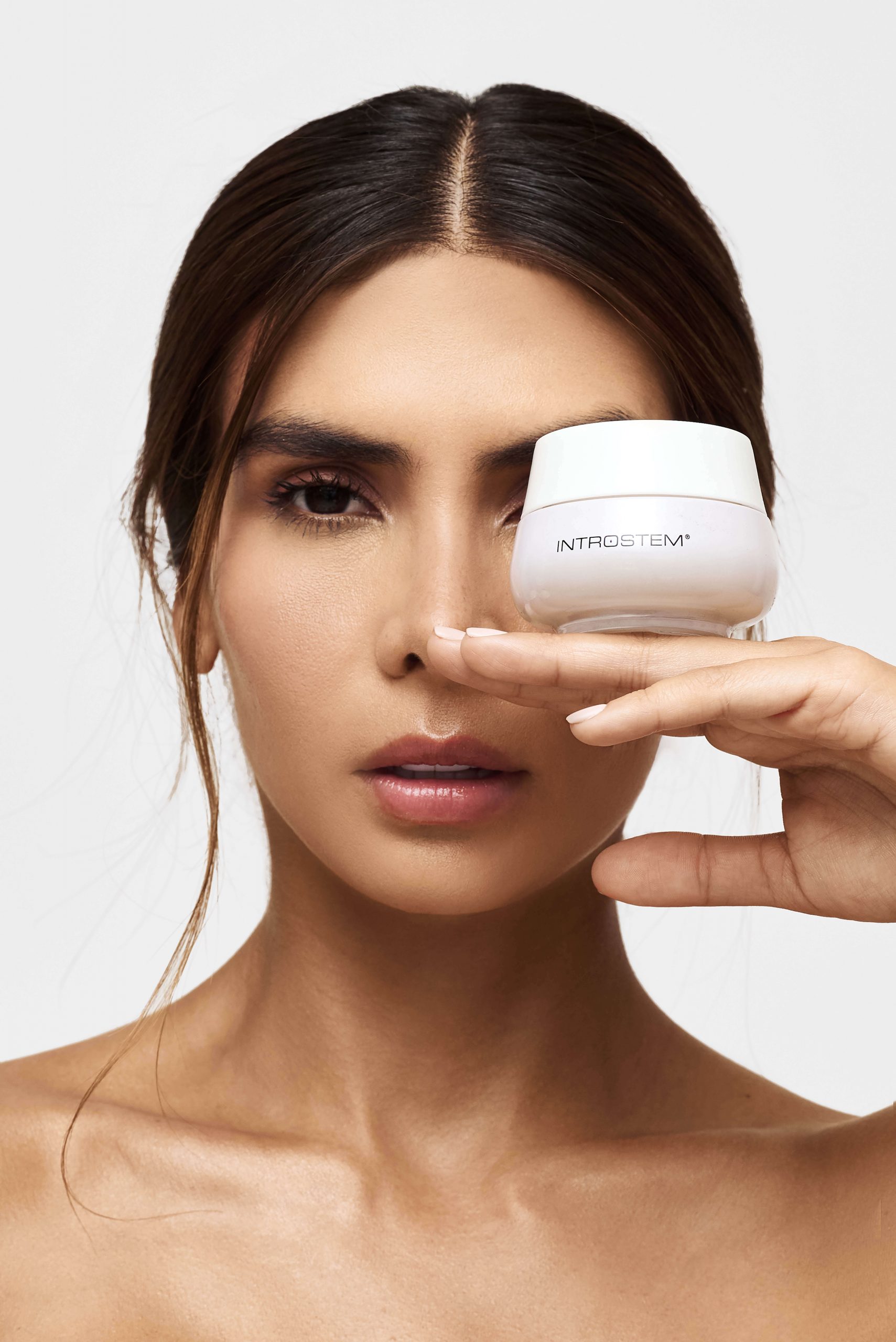Just about everybody is now aware of the damage that the sun can cause to the skin, meaning that more and more people are now turning to sunscreen in an attempt to safeguard their skin. Unfortunately, at the same time, there are also so many sunscreen myths out there that could be causing your sun protection efforts to be less effective than you think.
If you want to ensure that you’re giving your skin the maximum amount of protection, read on as Introstem debunks some of the most common sunscreen misconceptions around.
Myth: All Sunscreens Work in the Same Way

While it’s true that all sunscreens share the same goal – to protect your skin from the sun – they don’t all work in the same way. There are two main types of sunscreen out there; mineral and chemical. Mineral sunscreens work by sitting on your skin’s surface and deflecting UV rays while chemical sunscreens, such as the Introstem VitisCell Facial Shield Cream SPF 30, absorb UV rays so that they undergo a chemical reaction and are then released from the skin as heat.
Why does this matter if they both still protect your skin from the sun? Because the type of sunscreen you use should affect how you apply it. For example, with mineral sunscreens needing to sit on the skin’s surface, these should always be applied after the rest of your skincare products if you want full protection. Meanwhile, chemical sunscreens do best when they’re applied close to the skin. So, layer yours on after applying your serums, and then finish off with your regular moisturizer.
Myth: Applying Sunscreen in the Morning Will Protect You All Day
Although you may want to believe that your morning application of SPF will keep your skin safe all day, this, unfortunately, isn’t true. Instead, no matter how high the SPF rating of your sunscreen may be, it will only prevent UV damage for a couple of hours.
This is why reapplication is so important, and is also where people tend to fall short. To prevent UV damage, you should ideally be reapplying your sunscreen every couple of hours. If you happen to be sweating a lot or you’ve gone for a swim, another reapplication will be necessary to compensate for the product that has been washed away.
Myth: Waterproof Sunscreens Don’t Need to Be Reapplied After Swimming
Surely if you’re using a waterproof sunscreen, then this doesn’t need to be reapplied, right?
Wrong. While many products may make grand claims of how waterproof their formulas are, no sunscreen is 100% waterproof. This simply isn’t possible.
With that said, some sunscreens can be water-resistant. Again, this doesn’t mean that they’ll be able to completely hold up against water. You’ll still need a fresh layer if you’ve been swimming. However, these formulas can be great if you’re heavily sweating as you won’t need to reapply your sunscreen quite as often.
Myth: After-Sun Products Repair the Damage Caused by UV Rays

If you’ve been neglectful with sunscreen and are now paying the price with skin that feels red and inflamed, this is a sign that those UV rays have already damaged your skin. Can you repair this damage by using after sun products? Definitely not.
UV damage runs deep. After sun products are great for soothing the feeling of sunburns but they can’t do anything about the deeper damage that has occurred. Sure, they’ll make the surface of your skin look a little happier but this won’t change the fact that UV rays have likely damaged your skin cells at DNA level.
By all means, stock up on after-sun products if you spend plenty of time outdoors. Formulas that contain aloe vera, like the VitisCell Day Repair Facial Cream, are particularly beneficial. However, don’t be fooled into thinking that after-sun products repair UV damage.
Myth: People With Dark Skin Don’t Need to Use Sunscreen
The myth that dark skin tones don’t need sunscreen is one of the most damaging misconceptions out there. It stems from the fact that dark skin contains more melanin. This is the pigment that gives the skin its color and also serves as a form of natural sun protection. Sadly, the extra natural protection that dark skin tones enjoy is minuscule – certainly not enough to protect against UV damage.
When it comes down to it, people with dark skin are still highly susceptible to the sunburns, premature aging, and skin cancers that UV rays cause. This makes it essential to keep your skin protected from the sun at all times, no matter what your skin color may be.
Myth: Sunscreen Doesn’t Expire
Found an old bottle of sunscreen at the back of a cupboard? While you may be tempted to use it, it’s always worth checking out the product’s expiration date first. That’s right – sunscreens, just like all other skincare products, expire.
If you use your sunscreen diligently and daily, you won’t have this problem. You’ll get through that bottle before it has the chance to even think about expiring. However, if you’ve been lackadaisical about your sunscreen usage and have discovered a half-empty bottle from years gone by, be wary about applying it. While it’s unlikely to actually damage your skin (depending on the ingredients – some can oxidize over time and trigger free radical damage in the skin), it’s not going to provide you with the SPF rating on the bottle either. Those UV filters will have deteriorated, meaning that you’ll think your skin is protected when it actually isn’t.
To be safe, throw that bottle out and buy yourself a fresh new sunscreen instead.
Myth: Sunscreen Isn’t Needed on Cloudy Days or in the Winter
It’s easy to understand why people believe the myth that sunscreen only needs to be worn when it’s sunny. After all, if there’s thick cloud in the sky or you happen to be in the midst of winter, surely you don’t need to worry about sun damage?
Unfortunately, that thinking is what causes much of the sun damage that people experience. Even though you may not be able to see or feel the sun’s heat, UV rays are still present and will still wreak havoc on your skin. In fact, research shows that cloud cover doesn’t mitigate UV damage while other studies point to how significant damage can occur in the winter months too.
Therefore, if you want to keep your skin fully protected, year-round sunscreen is a must. Don’t be tempted to forgo the SPF if you happen to be spending the day indoors either. UV rays can penetrate through glass, meaning that you’re never really safe from them!
Myth: Sunscreen Prevents the Body From Producing Vitamin D
Many people cite vitamin D as their reason for not wearing sunscreen. After all, the body produces vitamin D through sun exposure. If you block that sun exposure with sunscreen, then doesn’t this mean that you’ll end up deficient in this vitamin?
Not at all. Yes, your skin needs some unprotected sun exposure to produce vitamin D but let’s not forget that no sunscreen provides 100% protection. Even if you’re strict about your sunscreen usage, some of those UV rays will still touch your skin, whether this is because you’ve missed a small area of your face when reapplying your SPF or you’ve left it slightly too long in between reapplications.
Plus, your body is just as capable of soaking up those rays as your face. Even when covered with clothing, some of those UV rays will still get through. You only need five minutes or so in the sun to produce your daily vitamin D requirement and there’s a good chance that this will still happen, even if you’re wearing sunscreen at all times.
Myth: Long Clothing Will Keep the Skin on the Body Protected From the Sun
That leads us to the next myth on our list; clothing protecting the skin from UV rays. People who believe this myth often cover the face with SPF and assume that the body will remain safe thanks to the clothes that are covering it.
What’s the problem with this? Well, it’s true that clothing helps to shield the skin from UV rays. However, as mentioned above, UV rays can penetrate through many materials. If your outfit consists of a loose weave material and light colors, the sun will still be wreaking havoc on the skin on your body.
If you want your clothes to offer maximum protection, look for dark colors with a tight weave. There are now also many new fabrics out there that come with a UPF rating. Just like SPF, this indicates that the material is capable of blocking UV rays.
Myth: SPF Makeup Can Be Used Instead of Sunscreen
Think that you can skip the sunscreen because you’re wearing SPF makeup?
Think again…
Sure, there are many makeup products out there that promise good protection. Some are even formulated with SPF 50, making it seem as though this is all you need.
However, in order for that SPF rating to hold true, you need to apply a certain amount of that product. A light layer isn’t going to cut it.
Don’t forget that sunscreen also needs to be reapplied every two hours, even in makeup form. Unless you’re happy to continually layer makeup over your face throughout the day, which could spell bad news for your skin, you would be better off with a dedicated sunscreen instead. Apply this underneath your makeup and then layer your SPF makeup products over the top. This way, you’ll be gaining even more protection than what your sunscreen offers, which your skin will appreciate!
Summary
Not only is the sun responsible for up to 80% of the wrinkles and discoloration that appear on the skin as we age, but it’s also the prime culprit behind certain forms of skin cancer. With sun damage having such a major influence on both your appearance and your health, it goes without saying that sun protection should be a priority. To make sure that you don’t slip up on your sun protection efforts, keep the advice above in mind and ensure that you don’t fall for any of the common sunscreen myths out there!
Click here to enhance your complexion even more with Introstem’s bestselling products.



0 comments on “Sunscreen Myths Debunked: What You Need to Know For Proper Protection”